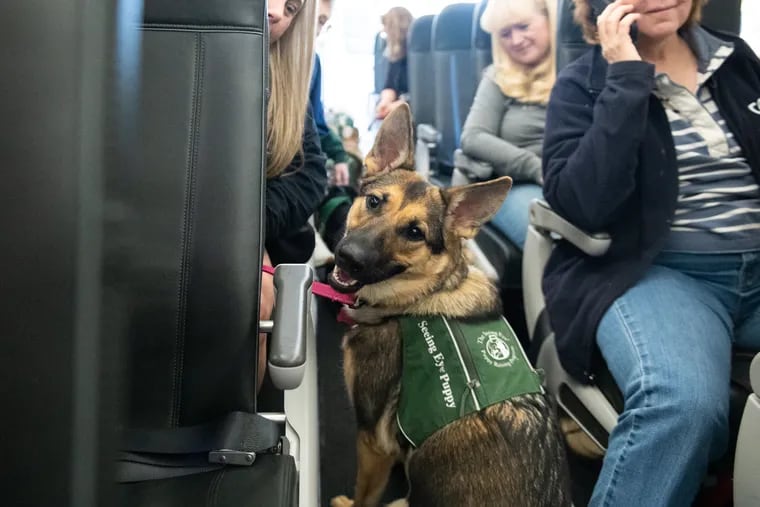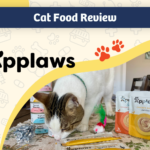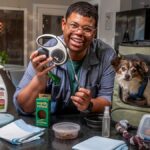Sniffing round with professionalism, a pack of service puppies went via airport safety, discovered their gate, and boarded a aircraft all earlier than nap time.
On Saturday, greater than 40 golden retriever, Labrador, and German shepherd puppies from the company strolled via Philadelphia Worldwide Airport terminals with one mission: coaching to help individuals with visible impairments.
Placing the TSA PreCheck line on a quick maintain, these first-time vacationers, all leashed up and in inexperienced vests, easily guided their trainers via safety screenings and to departure gates with nary a growl, arguably extra nice than many vacationers.
They have been on their finest conduct strolling from Terminal A to E, with occasional playful “woofs” evidencing their youth. Even busy vacationers discovered it exhausting to withstand their fluffy enchantment, with many stopping to ask if they might pet the pups or just observing them with endearment.
Service canines are to not be petted whereas they’re at work, in line with Kimberly Winnington, space coordinator for the , a information canine group primarily based in Morristown, N.J. However, as a result of these pups are nonetheless coaching (a.okay.a. off-duty) and getting used to environments like this, passersby have been allowed to the touch them.
» READ MORE:
Abbey Isett’s toddler couldn’t assist however gently method a black Labrador pup, who tried to maintain composed as his coach reassured him the interplay was OK.
For Isett, whose husband has a genetic situation that’s main him to blindness, the scene was a heartwarming and reassuring second.
“That is one thing we’re going to must look into sooner or later,” she mentioned. “I really like seeing this as a result of it means (her husband) will nonetheless have the chance to journey.”
The Seeing Eye puppies are socialized by host households after they’re round 7 to eight weeks previous, studying about primary home guidelines and , earlier than happening to formal coaching after which being matched with individuals with visible impairments.
Regardless of receiving coaching, not all puppies go on to turn out to be guides, however about 60% of them will, Winnington mentioned.
4-month-old golden retriever Shallynn gave older pups a run for his or her treats, maintaining with them and solely briefly plopping to the ground for relaxation breaks, wagging her tail as she took within the airport scene.
Her coach, Curt Wolford, has been doing this for a decade and thinks Shallynn stands a “nice likelihood” to turn out to be a information canine.
“She is spot on, brilliant, wholesome, good on the leash; not all puppies are,” Wolford mentioned, describing Shallynn as a extremely particular pup whose favourite toy is a squeaky iguana.
He hopes she will get a very affectionate without end household as a result of she loves enjoying with youngsters and giving them kisses till they giggle, Wolford mentioned.
Within the (unlikely) occasion she doesn’t turn out to be a information, Wolford isn’t anxious.
Puppies who don’t cross this system might be adopted by their host household. The 68-year-old himself already has a pup he adopted as a part of this program seven years in the past, and she or he (reluctantly) helps information pet trainees Wolford brings residence.
Earlier than Shallynn’s fluffy ears might end taking within the cacophony of bulletins and voices round her, it was time for the pups to board a flight to nowhere.
Ambling down the slender boarding bridge, the pups and trainers boarded a Frontier Airways aircraft for the expertise.
“You’re doing nice; you’re a good woman; you bought this, Ruby,” coach Lisa McBride reassured her black Lab as they walked to their seat.
McBride, a seasoned coach, is trying ahead to all the assistance Ruby will be capable to present somebody. However her departure will undoubtedly be a heartbreak, McBride mentioned.
“She is my child,” McBride mentioned. “However I do it in order that the longer term blind one that will get her will be capable to type that love connection together with her.”
As seats crammed up, Ruby and the opposite service pups calmly lay down with out bothering each other.
That’s the distinction between a service animal and an one, Winnington mentioned.
Service canines are educated to assist individuals with disabilities navigate their environments. They’re primarily at work when in public locations.
“To provide them this early publicity and have them expertise it and get extra comfy with it actually can construct their confidence and improve their possibilities of success,” Winnington mentioned.







